Search Results
Showing results 881 to 900 of 987

Pupil to Pupil
Source Institutions
In this quick and simple activity about reflexes (at the top of the webpage), learners conduct a simple test to explore pupillary response.
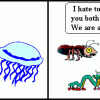
The Senses of "Unknown Creatures"
Source Institutions
In this activity, learners use earthworms as "unknown creatures" from the South American jungle to find out how animals use senses.
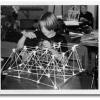
Skewers and Garden Poles
Source Institutions
In this activity, learners build scaled-down structures and cantilevers in a series of "building out" challenges with bamboo skewers and tape.

Sock It To Me!
Source Institutions
In this activity (7th activity on the page), learners use their sense of touch to identify mystery objects hidden in socks.

Outbreak!: Investigating Epidemics
Source Institutions
A group of learners simulates the spread of disease by trading slips of paper, one set of which has been treated with a baking soda solution.
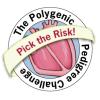
Pick the Risk: The Polygenic Pedigree Challenge
Source Institutions
In this activity, learners are challenged to track and record the passage of colored pom poms (representing genes) through generations of a family using a pedigree.

Dinosaur Skull and Body Length Predictions
Source Institutions
In this activity (located on page 2 of PDF under GPS: Baby Dinosaurs Activity), learners will look for a relationship between skull size and body length among various dinosaurs.
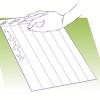
Sea Turtle Populations
Source Institutions
In this activity (on page 2 of PDF under GPS: Sea Turtles Activity), learners will model how a sea turtle population changes over time, from eggs to adults, using puffed rice.

Right Ear/Left Ear
Source Institutions
In this activity (4th on the page), learners conduct a series of tests to find out which of their ears is more dominant.
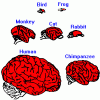
Jump to It!
Source Institutions
This is a quick and simple demonstration about reflexes (second activity on the page).

Forces at the Nanoscale: Nano Properties of Everyday Plants
Source Institutions
This is an activity (located on page 3 of PDF under Nasturtium Leaves Activity) about surface tension.
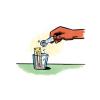
Change in Temperature: Exothermic Reaction
Source Institutions
Learners add calcium chloride to a baking soda solution and observe an increase in temperature along with the production of a gas and a white precipitate. These are all signs of a chemical reaction.
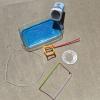
Burst a Bubble
Source Institutions
In this activity, learners will create their own bubble solution. Learners will explore chemistry, geometry and trial and error through this activity.

Peripheral Vision
Source Institutions
How far can you see out of the corner of your eye? Grab a partner and find out from the Exploratorium Science Snack.
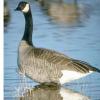
Canada Goose: Explore Trends With Data
Source Institutions
In this activity, learners will explore trends in Canada goose populations using real data from the National Audubon Society's Christmas Bird Count.
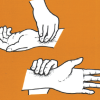
Cardiac Hill
Source Institutions
In this outdoor activity linking human health to the environment, learners use their pulse rates as a measure of the effort expended in walking on different slopes.

Four Corners
Source Institutions
In this design challenge activity, learners build a machine out of cardboard that runs smoothly and dependably. Learners must be precise to make sure their component works properly.
Catch & Release II: It's Catching On!
Source Institutions
Throw that fish back? A new generation of ethical anglers concerned about conserving resources is participating in "catch and release" fishing. How is this going?
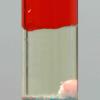
Five-Layer Density Column
Source Institutions
In this activity, learners can create five-layer density columns by employing one of three (or all) methods.
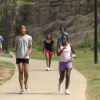
Workin' It Out
Source Institutions
In this activity, learners explore how to stay fit the fun way. Learners participate in three physical activities.
